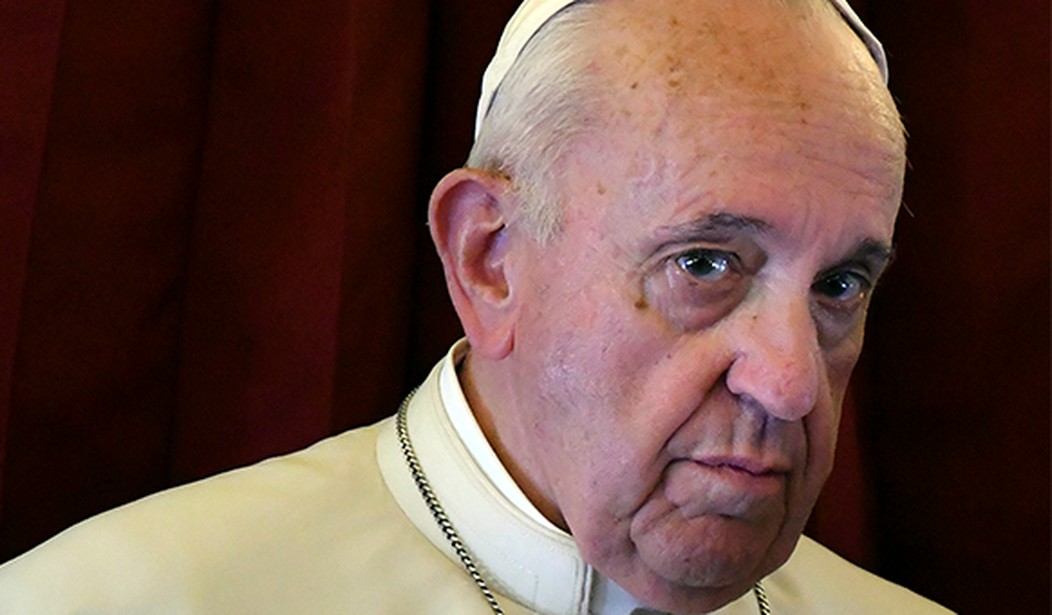On Sunday, Pope Francis broke his silence regarding the decision by Turkish President Recep Tayyip Erdogan to convert Hagia Sophia, the foremost cathedral in the Christian world for nearly a thousand years, to a mosque. If you blinked, however, you might have missed it. “I think of Hagia Sophia,” the Pope said, “and I am very saddened.” It was quite clear why he didn’t choose to say more: virtually anything he added would have landed him in troubles that he doesn’t want to have.
As I stated to Church Militant, the Pope’s tardy statement, such as it is, manifests a studied ambiguity. What exactly is he saddened about? He doesn’t say. Is he saddened because what was the foremost church in the Christian world for nearly a millennium, and the center of Eastern Christianity, has been made a mosque?
Or is he saddened because this act harms the dialogue that he has so ardently pursued with the Islamic world — even at the price of silence over the Muslim persecution of Christians — and demonstrates that his dialogue partners are not remotely as interested in tolerance, mutual respect, and peaceful coexistence as he likes to pretend that they are?
Has Pope Francis made this unclear statement because he doesn’t wish to say anything clearly in support of maintaining Hagia Sophia’s status as a museum, for fear of offending those Muslim dialogue partners?
He has certainly worked hard to avoid offending them, and they have let him know they’re grateful. In September 2017, Pope Francis met in the Vatican with Dr. Muhammad bin Abdul Karim Al-Issa, the secretary-general of the Muslim World League (MWL), a group that has been linked to the financing of jihad terror. During the meeting, al-Issa thanked the pope for his “fair positions” on what he called the “false claims that link extremism and violence to Islam.”
Ahmed al-Tayeb, the Grand Imam of Cairo’s al-Azhar, has also thanked the Pope, for his “defense of Islam against the accusation of violence and terrorism.” Al-Tayeb is Pope Francis’ favored dialogue partner, and the Pope has committed the Catholic Church to silence about Muslim persecution of Christians as the price for that dialogue. The Associated Press reported in 2016 that the pope “embraced the grand imam of Al-Azhar, the prestigious Sunni Muslim center of learning, reopening an important channel for Catholic-Muslim dialogue after a five-year lull and at a time of increased Islamic extremist attacks on Christians.”
Why had there been this “five-year lull”? Because “the Cairo-based Al-Azhar froze talks with the Vatican to protest comments by then-Pope Benedict XVI.” What did Benedict say? Andrea Gagliarducci of the Catholic News Agency explains that after a jihad terrorist murdered 23 Christians in a church in Alexandria 2011, Benedict decried “terrorism” and the “strategy of violence” against Christians, and called for the Christians of the Middle East to be protected.
So Pope Benedict condemned a jihad attack, one that al-Azhar also condemned, and yet al-Azhar suspended dialogue because of the pope’s condemnation. Then Pope Francis wrote to the Grand Imam of al-Azhar affirming his respect for Islam, and the Grand Imam warned him that criticizing Islam was a “red line” that he must not cross. That strongly suggests that the “dialogue” that Pope Francis has now reestablished will not be allowed to discuss the Muslim persecution of Christians that will escalate worldwide, especially since an incidence of that persecution led to the suspension of dialogue in the first place.
Francis, for his part, in sharp contrast to Benedict, has proclaimed that “authentic Islam and the proper understanding of the Koran reject every form of violence,” doing his bit to ensure that as many Christians as possible would remain ignorant and complacent about the jihad threat that his precious “dialogue” does nothing to mitigate.
In the midst of all this, the conversion of Hagia Sophia to a mosque should be the occasion of some introspection on the Pope’s part, leading him to reconsider the value of a Muslim-Christian dialogue that has not prevented this expression of Islamic triumphalism and supremacism. But it almost certainly will not be.
Robert Spencer is the director of Jihad Watch and a Shillman Fellow at the David Horowitz Freedom Center. He is author of 21 books, including the New York Times bestsellers The Politically Incorrect Guide to Islam (and the Crusades) and The Truth About Muhammad. His latest book is Rating America’s Presidents: An America-First Look at Who Is Best, Who Is Overrated, and Who Was An Absolute Disaster. Follow him on Twitter here. Like him on Facebook here.










Join the conversation as a VIP Member